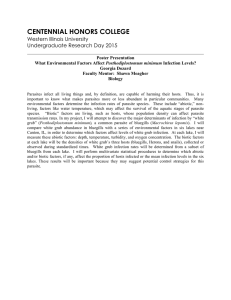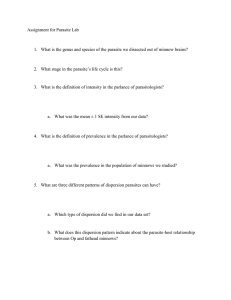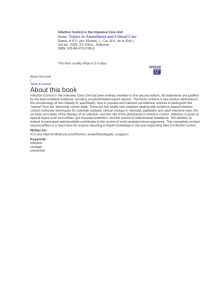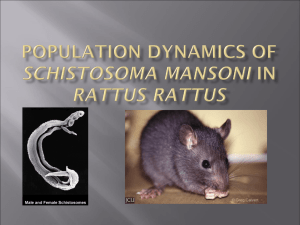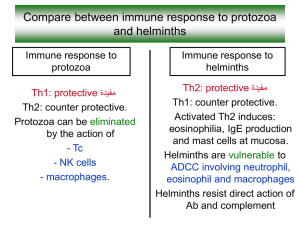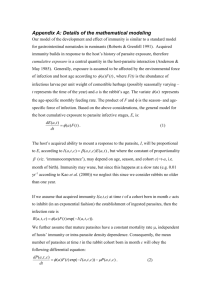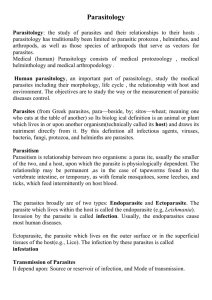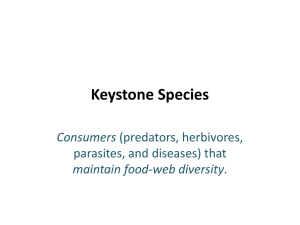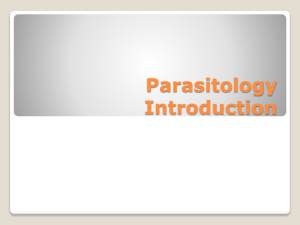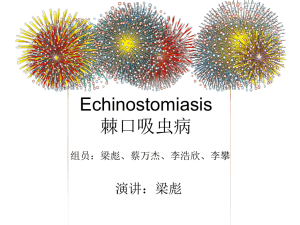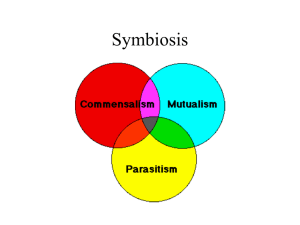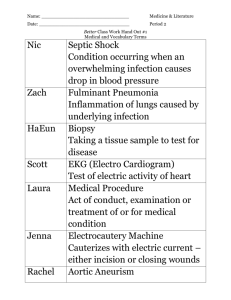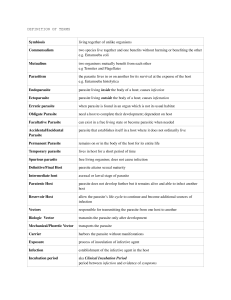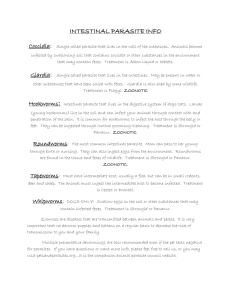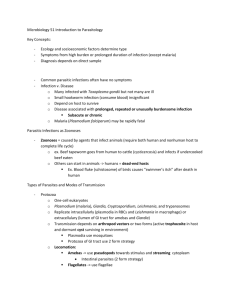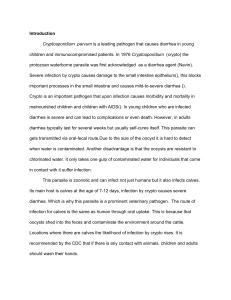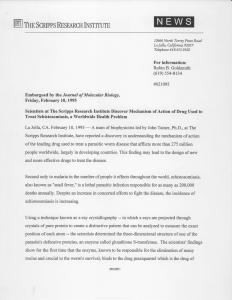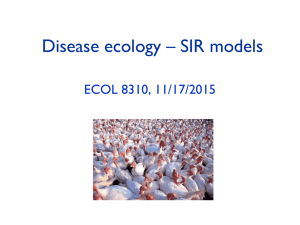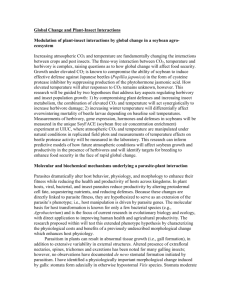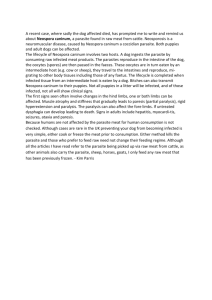Meeting of Belgian Society for Parasitology
advertisement
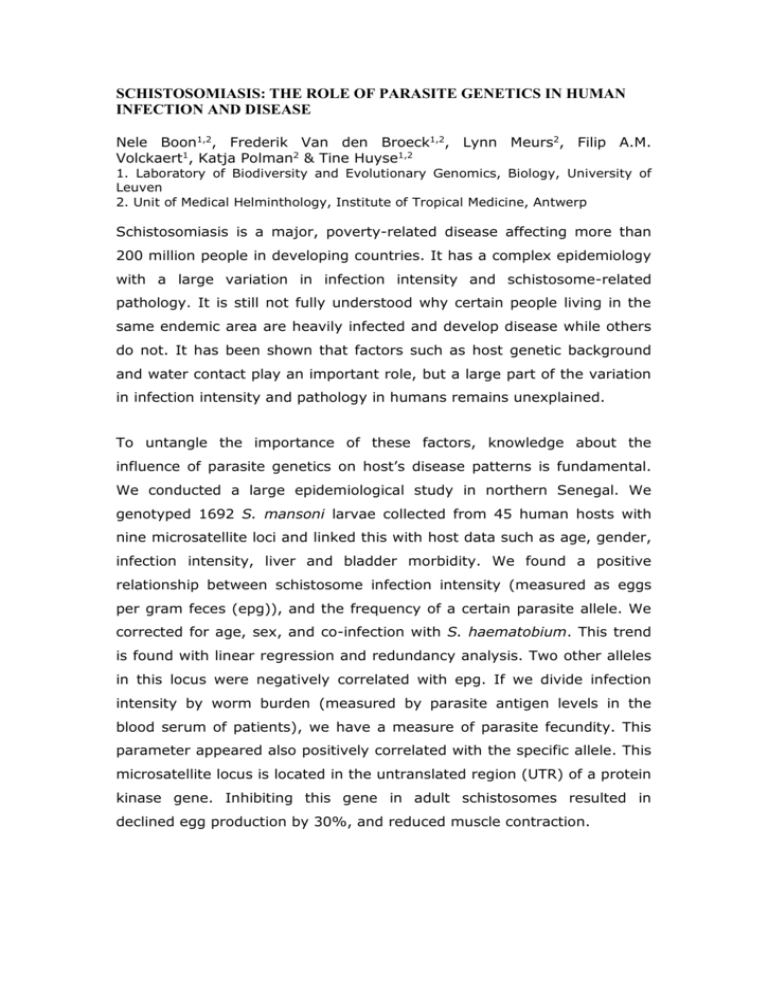
SCHISTOSOMIASIS: THE ROLE OF PARASITE GENETICS IN HUMAN INFECTION AND DISEASE Nele Boon1,2, Frederik Van den Broeck1,2, Lynn Meurs2, Filip A.M. Volckaert1, Katja Polman2 & Tine Huyse1,2 1. Laboratory of Biodiversity and Evolutionary Genomics, Biology, University of Leuven 2. Unit of Medical Helminthology, Institute of Tropical Medicine, Antwerp Schistosomiasis is a major, poverty-related disease affecting more than 200 million people in developing countries. It has a complex epidemiology with a large variation in infection intensity and schistosome-related pathology. It is still not fully understood why certain people living in the same endemic area are heavily infected and develop disease while others do not. It has been shown that factors such as host genetic background and water contact play an important role, but a large part of the variation in infection intensity and pathology in humans remains unexplained. To untangle the importance of these factors, knowledge about the influence of parasite genetics on host’s disease patterns is fundamental. We conducted a large epidemiological study in northern Senegal. We genotyped 1692 S. mansoni larvae collected from 45 human hosts with nine microsatellite loci and linked this with host data such as age, gender, infection intensity, liver and bladder morbidity. We found a positive relationship between schistosome infection intensity (measured as eggs per gram feces (epg)), and the frequency of a certain parasite allele. We corrected for age, sex, and co-infection with S. haematobium. This trend is found with linear regression and redundancy analysis. Two other alleles in this locus were negatively correlated with epg. If we divide infection intensity by worm burden (measured by parasite antigen levels in the blood serum of patients), we have a measure of parasite fecundity. This parameter appeared also positively correlated with the specific allele. This microsatellite locus is located in the untranslated region (UTR) of a protein kinase gene. Inhibiting this gene in adult schistosomes resulted in declined egg production by 30%, and reduced muscle contraction.

